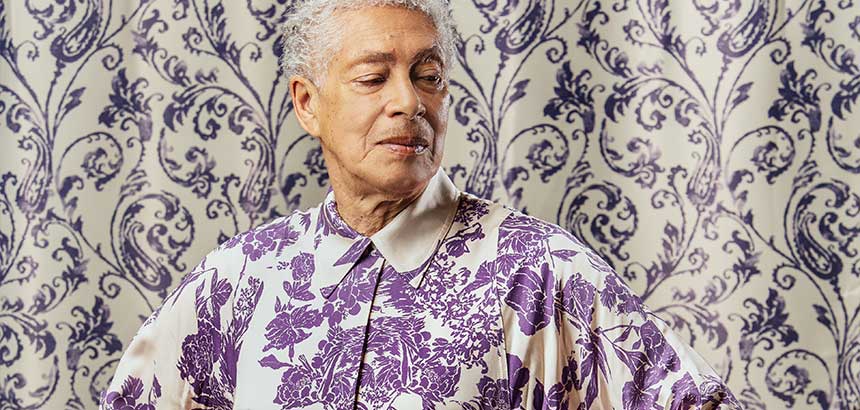Michel Marc Bouchard’s script is and has always been a theatrical gift to the queer community: a complex, affecting, timeless story of starcrossed lovers, with queer characters, queer conflicts, and queer ways of knowing. Written in the 1980s, set in the 1950s, and telling stories that transpired in the 1910s, Lilies; or, The Revival of a Romantic Drama is, among many things, a testament to how tales of queer love have always existed, and have always been worthy of telling.
But from our vantage point, kneedeep in the twenty-first century, and entering the fifth decade of the largest and longest-running queer theatre in the world, we are able to confront a more tenacious reality: for many 2SLGBTQ people surviving colonialism on Turtle Island, queerness is but a starting point for our systemically star-crossed lives.
Lilies is a story about love, loss, and (in)justice. Its metatheatrical setting is a Quebec prison, where a group of incarcerated people gather to perform the story of events that transpired 40 years prior at an all-boys’ Catholic school in nearby Roberval.
A social justice organization I once worked with framed one year of our public programming under the title What Does Colonization Look Like Today? I return to this question often, still struck by the depth of critique invited by its six words. What does colonization look like today? What does it look like here, in this land called Canada? Every time I ask, I see that colonization today looks like many things: The continued occupation of unceded land. The nonconsensual building of pipelines through Indigenous territory. The lingering intergenerational impact of residential schools. The ongoing displacement of Indigenous peoples around the globe and the ensuing migration. The continued containment of the Indigenous, Black, and other racialized bodies who are massively overrepresented in prisons. It looks like the fact that while Indigenous women represent 4 percent of women in Canada, they comprise half the women’s population in maximum-security facilities and are the fastest-growing prison demographic overall. It looks like how 25 percent of incarcerated Black women in Canada are foreign nationals who are made to serve a sentence and are then deported. It looks like the queerphobia and transphobia that was brought to this land through colonialism and that has led to the overrepresentation of queer and trans people in prisons, especially trans women of colour. Colonization today is upheld by the institutions of the state, and the prison system is one of its most effective tools.
This production brings together a powerful team: three generations of queer, trans, and two-spirit artists, in the forefront those who are Indigenous, Black, and People of Colour. Lilies director Cole Alvis is a Métis artist with Chippewa, Irish, and English heritage from the Turtle Mountains in Manitobah. As Cole likes to say, one of our responsibilities as we work to be good guests on the Indigenous lands and waterways of Tkarón:to is to grapple continuously with colonialism in our arts practice. I have come to be on these lands through other legacies of colonialism – the British colonization of what is now called India, and of the Arawak and Carib land that is now called Guyana; the coercive movement of Indians from the former to the latter several generations ago via the colonial project of indenture; and the recent emigration of Guyanese fleeing post-colonial civil turmoil and seeking new homes elsewhere in the ‘Americas’. For me, as a queer theatre-maker in double diaspora making art on colonized land, this project is an opportunity for diverse people, impacted by colonialism in distinct, intersecting ways, to gather around a beloved text and experiment with how theatre can aid us in both better understanding this world, and in imagining new ones.
In this production, we resist using the prison as passive setting for its characters to “storytell” the events of Roberval, and we do not accept prison uncritically as a metaphor for other kinds of un-incarcerated human experience. We have instead, through a multi-stage structure that weaves conventional rehearsal methods with collective learning and facilitated community processes, invited the creative team to bring their experiences of the so-called justice system and of colonialism into the rehearsal hall, so that it may inform our artistic work. We are celebrating this queer Canadian classic in a new way, one that, we hope, deepens its capacity to present and ignite conversations about what it means to love, to lose, and to serve justice.
We now invite you, our wider community, into this process as audience. We encourage you to join us in exploring this passionate story that is at once about the delicate power of concealed relationships in a tight-knit community, as in 1912 Roberval, and about the revolutionary potential of marginalized people searching for truth through collective storytelling, as in the 1950s Quebec prison, as well on the Buddies stage today. We invite you to come to this production with open hearts, to bear witness to a creative process that has linked itself to a wider project of collective healing, and to task yourself to find the many ways you can locate yourselves within the layers of love, loss, and (in)justice.
photo by Tanja-Tiziana


